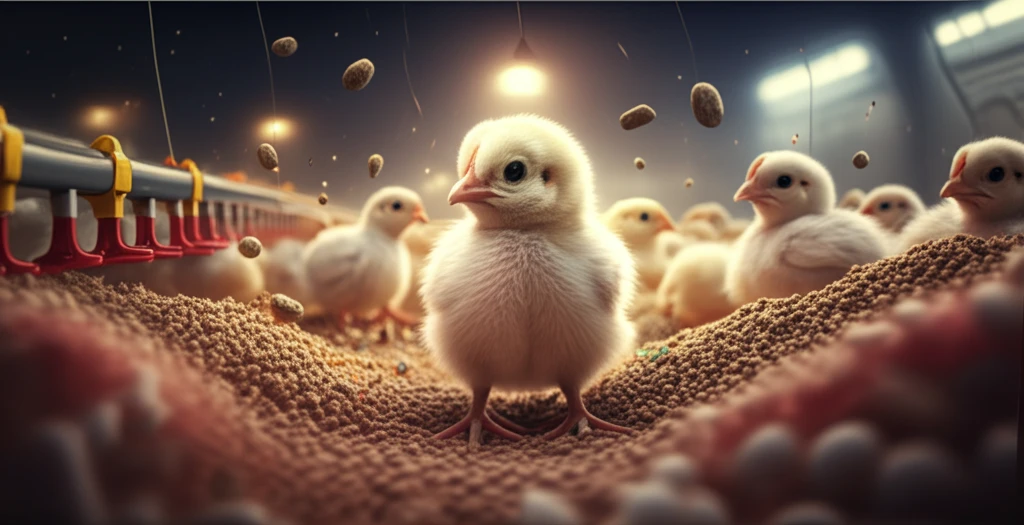
Unlock Broiler Breeder Potential: How Early Feeding Programs Shape Adult Performance
"Optimize Your Flock: Discover the impact of pre-starter feed and probiotics on broiler breeder development and long-term productivity."
In the fast-paced world of Brazilian aviculture, optimizing broiler breeder performance is crucial for success. Studies focusing on improving zootechnical performance indexes are essential to meet the growing demands of the industry. Strategic feeding programs play a vital role in achieving these improvements, particularly during the early stages of a broiler breeder's life.
A recent study investigated the effects of different feeding programs on broiler breeders, focusing on performance and digestive organ development. The research aimed to determine whether specific early feeding strategies could lead to enhanced physical and productive traits in adult birds. The study explored the use of pre-starter feeds and probiotics, comparing their impact to traditional starter feeds.
Understanding the nutritional needs of broiler breeders from day one is critical. The first week of life presents a unique window of opportunity to influence long-term health and productivity. By providing the right nutrients and support during this period, producers can set their flocks up for success, maximizing their genetic potential and overall performance.
Pre-Starter Feeds and Probiotics: A Powerful Combination for Early Development?

The study involved 48,000 one-day-old Cobb 500 broiler breeders, divided into two sheds. Within each shed, four feeding treatments were implemented: starter feed alone, starter feed with probiotics, pre-starter feed alone, and pre-starter feed with probiotics. The sheds were named Shed 1 and Shed 2, with T1 being starter feed for Shed 1 and T3 being the pre-starter feed for Shed 2. This design allowed researchers to compare the effects of feed type and probiotic supplementation on various performance metrics.
- Improved Weight Gain: Birds fed pre-starter feed showed better weight gain during the first three weeks.
- Enhanced Feed Conversion: Pre-starter feed groups exhibited superior feed conversion ratios, indicating more efficient nutrient utilization.
- Digestive Organ Development: Pre-starter feed positively influenced the development of key digestive organs, including the small bowel, gizzard, and proventriculus.
Optimizing Early Nutrition for Long-Term Success
The study's findings support the conclusion that incorporating pre-starter feed into the early feeding programs of broiler breeders can lead to significant improvements in physical and productive performance later in life. By focusing on optimal nutrition during the first week of age, producers can positively influence the development of key digestive organs, enhance growth rates, and improve feed efficiency. These early investments in nutrition can translate into healthier, more productive flocks, ultimately contributing to the success of broiler breeder operations.
